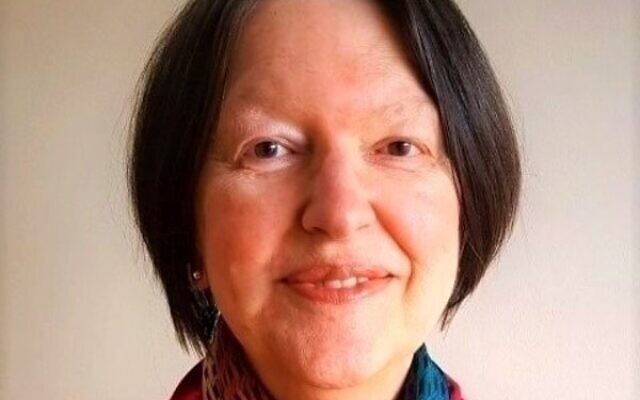Don’t ignore research of our own historians
Improving Australians' knowledge of the Holocaust
Having read the Gandel Holocaust Awareness and Knowledge Survey, undertaken on the Gandel Foundation’s behalf by four Deakin University academics, I wish to comment as a historian of the Australian Jewish experience upon that part of the document which relates to what the authors term “Australian Holocaust connections”.
The survey notes that this section “tested knowledge of the Evian Conference, the HMT Dunera, William Cooper and Australia’s Holocaust survivors” and that most respondents “did not know any of the answers”. It said, “Australians know far less about their country’s connections to the Holocaust than they do about events in Europe.”
The survey recommends that further “research” and the creation and distribution of “specific resources” are required “to address gaps in Holocaust knowledge, especially the period 1933-39, and as it relates to Australia”.
It is curious that none of the specialist authors of scholarly works on Australian Jewish history are advisers to the survey. There are people connected to museums, and that is understandable, since museums play a key role in bringing information into public view. Yet much of the work of Australian Jewry’s historians, which is invaluable to the project at hand, is seemingly overlooked.
Accordingly, the many already existing analytical books and articles on the theme of Australia and the Holocaust or some key aspect of that topic appear to have been almost entirely overlooked, prompting the erroneous assumption that many more “specific resources” need to be created. It would seem, for instance, that the survey team is unaware that there are few scholars of the Australian Jewish experience who have not published in the Australian Jewish Historical Society’s twice-yearly Journal, which over the decades in virtually every issue has carried material of prime relevance to the so-called “Australian Holocaust connections”.
This material, comprising studies, memoirs and book reviews relating to that theme is accessible to anyone who logs into the society’s website, since only the most recent issues of the Journal are restricted to our members.
Among the relevant articles will be found a groundbreaking study (based on a unique archival resource that is now in Israel) tracing the perhaps surprisingly early beginnings of Holocaust denial in Australia, and other works on the non-
Jewish men and women of goodwill (drawn from all shades of political opinion and from all denominational backgrounds) who championed persecuted Reich Jewry and strove for the admission of large numbers of them to Australia, or to Palestine.
There are articles on Australian government policy and refugee migration by distinguished academic specialists in the field including articles on survivor migration, attitudes to migrants, contributions to Australia by noteworthy groups of central European Jews (not least the Dunera Boys, about whom some truly first-class material has appeared in the Journal’s pages).
As soon as news of Hitler’s attempts to make pariahs of Germany’s Jews became known in 1933, public protest meetings and condemnatory resolutions were made across Australia, sympathy for the victims of Nazism coming from public figures and private citizens of all shades of mainstream political opinion and all Christian denominations.
Newspaper editorials denounced Nazi antisemitism as a demented manifestation of medieval barbarity, and private citizens recorded their outrage in press correspondence columns. Similar protests erupted in the wake of Kristallnacht. Anglo-Celtic Aussie delegations that attempted to protest at the offices of Germany’s consular officials were treated with no greater hospitality than was the Indigenous delegation (famously led by William Cooper) that called at Melbourne-based German consul Dr Walther Drechler’s office on December 6, 1938, only to find it deserted.
In Western Australia, Victoria and New South Wales, eminent non-Jewish citizens, male and female, leftists and conservatives. captains of industry and union representatives, laymen and clerics, signed declarations in favour of the Freeland League for Jewish Colonisation’s proposal to settle many tens of thousands of refugee Jews in the Kimberley region.
These persons and their motivations are identified in the Journal. In Tasmania, a young Melbourne man, mining expert and publisher Critchley Parker’s son and namesake, lost his life in rugged terrain while pursuing his dream of a similar Jewish refugee settlement scheme in the hinterland of Port Davey. Despite publicity given to him and his scheme in the Journal and elsewhere in recent decades, his name is on few lips today.
Parker was touchingly acknowledged by the Freeland League’s head, Dr Isaac N Steinberg, with whom he had liaised, as “a martyr” for Jewry.
Another most interesting philosemite was Captain Edward Broughton, the 8th Employment Company officer of Maori heritage who was kindness itself to the Dunera Boys under his command. Hopefully, the many historical sources on Australia during the Nazi period will be used more fully in future to provide a full and comprehensive awareness of these and the other Australian champions of Jews during the Holocaust.
Dr Hilary Rubinstein edits the Australian Jewish Historical Society Journal’s Victorian editions.


comments